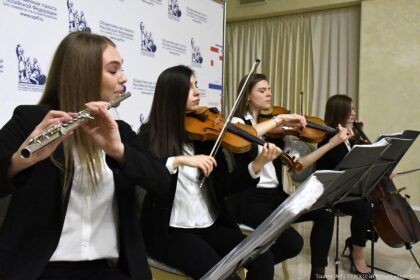Тема: Домашние животные. Грамматика: Пассив. Время: Один час для специализированной языковой школы, два – для обычной школы. Уровень: 5-7 классы, Elementary – Lower Intermediate. Уровень знаний учителя: компьютер, умение пользоваться Microsoft Word; Интернет, поисковые системы.
1. Student A likes all , but hates .2. Student B likes , but dislikes rats. Piranha a fierce river Barracuda a large fierce B. Before they read, remind your students that there is a (difficult words and their explanations) at the end of the text.Depending on whether your students are already able to recognize the perfect tenses, you may wish to point out that there is another passive form in the text, has been edStudent A likes , but dislikes insects (active).Most animals, , insects bite, but some don’t. Humans bite. Bees, wasps and scorpions sting; sharks bite, but whales swallow, and rays give one an electric shock. Let your students come up with their own examples!
С чего начать?
Открываем Интернет, вводим в строку адрес http://www.yahoo.com, слева видим категории новостей. Выбираем. Для первого раза советую воспользоваться разделом OMG (Oh My God), где собраны необычные истории. Есть также юмористические истории и новости «с человеческим интересом». Для учеников средней школы лучше взять небольшие тексты, желательно пересказать интересную новость покороче и попроще.
Прочитали, выделили курсором требуемый отрывок, скопировали, вставили в свой новый файл Microsoft Word. Все эти операции можно сделать через меню, функция Edit (Правка) – обычно в меню она следует за функцией Файл. Далее читаем текст, слишком сложные слова меняем на более простые синонимы. И рассуждаем: что мы можем сделать?
Тему «Домашние животные» школьники учат в разных ракурсах со 2-го по 11-й класс. Понятно, что она им изрядно надоела. Я попыталась найти неожиданный взгляд на знакомое – и нашла. В новостях мелькнули две небольшие заметки о том, как в Темзе обнаружили пиранью, и о том, как швейцарская таможня конфисковала запрещенный к ввозу груз – 775 тарантулов. И в том и в другом случае опасные для жизни человека существа предназначались для роли домашних животных. Судьба их оказалась крайне незавидной, поэтому дети могли испытать к хищникам сочувствие, жалость. Материал давал почву для рассуждений. Неожиданные примеры послужили дополнительным источником мотивации, помогли активизировать словарный запас.
Разработка урока, как обычно, началась с заданий «До чтения». Стоит проверить знание лексики, составить небольшие предложения с новыми и старыми словами. Затем можно читать первый текст. Если вы оставили в нем некоторые сложные слова, их стоит вынести в глоссарий.
Задание «После чтения» включает в себя разбор сложной для российских учеников темы «Пассив». Мой многолетний опыт позволяет заключить, что она сложна не столько грамматически, сколько концептуально. В русском языке мы редко говорим фразы типа «Ученики посажены учителем», «Книга прочитана мной», в то время как в английском языке такое построение фразы является совершенно нормальным, привычным. У нас же пассив используется скорее в научной, официальной речи. Поэтому дети даже в 11-м классе испытывают трудности, стараясь понять смысл предложений в пассивном залоге, равно как и выстраивая свои примеры. Чтобы усвоить тему, ученикам иногда приходится много раз перестраивать предложения. Сложности с пассивом испытывают и взрослые. Но ничего страшного в этом нет.
Как специалист, я понимаю смысл сообщения, пришедшего мне от редактора сайта электронных открыток: «This e-card has been asked to be edited», но перевести ее буквально не берусь. «Эта электронная открытка была попрошена быть исправленной» по-русски абсолютно не звучит.
Дайте ученикам 3-5 минут для обсуждения прочитанного, для сверки предложений в пассиве. Затем можно перейти ко второму тексту. Обратите их внимание на то, что в заголовке используются две пассивные формы подряд, это служит хорошей иллюстрацией к вашим объяснениям о роли пассивного залога в английском языке.
Для выполнения задания «После чтения» разделите класс на 2-3 группы. Предложите им составить список вещей и существ, которые их пугают или просто не нравятся. Когда школьники закончат составление списков по группам, предложите им обменяться листками и написать небольшие предложения. Напишите на доске образец по-английски: «Вася любит белых мышей, но не любит пауков».
Для закрепления материала предложите всему классу переделать составленные предложения из актива в пассив. Обязательно поставьте ограничение: 3-5 предложений согласно уровню знаний учеников.
Если останется минута-две, сделайте мини-опрос на тему «Сколько мы знаем существ, которые кусаются?»
Домашнее задание: составить 5 предложений в пассиве на тему «Домашние животные».
На следующем уроке после опроса по домашнему заданию можно предложить ребятам поискать информацию о выбранном ими животном в Интернете.
Урок
Good Bite?
Pre-Reading Activities
How Much Do You Know?
1) Match the following words with their definitions.
Piranha a very large snake
Tarantula a fierce river fish
Barracuda a tropical insect whose tail has a poisonous sting
Anaconda a large fierce fish
Scorpion a large hairy poisonous spider
2) Where do they live? You may write your sentences here:
a) Piranha lives …
b) Tarantula lives …
c) Barracuda lives …
d) Anaconda lives …
e) Scorpion lives …
Discuss your ideas with partners, and then ask your teacher if your answers are correct.
Reading Activities. Text 1
A. Scan the text quickly to find out which of the creatures from the previous activity are mentioned in it.
B. Now read the whole text carefully. Pay attention to the Glossary.
Piranha Fished Out of River Thames
LONDON (Reuters) – Just when you thought it was safe to go back into the water, a ferocious, carnivorous South American piranha has been fished out of London’s River Thames, environmental officials said Thursday.
The 4-inch-long red-bellied piranha was dropped by a passing seagull onto the deck of a boat built to oxygenate the river. The Thames was declared «dead» in the 1960s but is now home to 119 types of fish.
«It was very fresh and had obviously only just died. You could see the marks made by the seagull’s beak on its back», – fisheries officer Tom Cousins said.
Experts were quick to reassure Londoners they need not fear marauding shoals of meat-eating fish. The reputation of the piranha is worse than its bite and despite global warming, the Thames remains too cold to support such warm-water fish.
«We imagine that it was probably released and then floated to the surface where it was picked up by one of the very hungry seagulls and deposited in the boat», – London Aquarium curator Paul Hale said.
Ferocious (adj.) fierce, cruel.
Carnivorous (adj.) flesh-eating.
Oxygenate (v.) to add oxygen to.
Marauding (adj.) moving around in search of something to steal, burn, kill.
Shoal (n.) a large group of fish.
Post-Reading Activities
A. Grammar. The Passive.
The Passive Voice is used when we do not know who does the action, or when it is not necessary to say who does it. The action is more important than the person who acts.
The Passive is formed with a tense of be + past participle (the third form of a verb). For example, is used is Passive.
Look through the text again, and find as many examples of the Passive Voice as you can.
B. Language.
Read the following extract from the text carefully:
The reputation of the piranha is worse than its bite.
In pairs or small groups, discuss the meaning of this phrase. Try to remember an English saying which is used here. Do you have a similar phrase in your language?
Reading Activities. Text 2
Now read Text 2 and answer the following question:
In what way is it similar to Text 1? You may wish to think about the creature described, the geographical location, the measures taken to save the situation.
Smuggled Tarantulas Repatriated
Swiss customs officials seized 775 Mexican tarantulas smuggled into the country illegally to be sold as pets, Mexico’s government environmental agency said on Thursday. The hairy spiders, a protecte species, were stuffed into plastic bags on a flight to Zurich via Frankfurt. They wre repatriated to Mexico last weekend, although a third of them died on the round trip. The durviving spiders, which are usually a hardy species, are being held in quarantine in Mexico. Tarantulas are popular as pets, but their bite can cause pain comparable with a bee sting or, in some species, death.
Smuggle (v) to bring something from one country to another illegally
Repatriate (v) to send back to one’s own country
Hardy (adj) strong
A. Make a list.
Work in two or three small groups. Make a list of things that frighten the people in your group, or things which some of you dislike. You can write the students names across the paper, and the ugly or scary things down the paper, like this:
Student A Student B Student C
snakes
bats
mice
Pass the list around. If a student likes the thing, put a tick (v); if a student dislikes it, put a (x).
Compare your findings. Take turns to tell the results to your class.
1. Student A likes all fish, but hates snakes.
2. Student B likes mice, but dislikes rats.
B. Grammar. The Passive.
First, look through Text 2 to see if the Passive Voice is used in it, too. You should be able to find at least two examples!
Now take your own sentences from Activity A. Try to turn them from active into passive.
C. Language.
Look at the following sentence from Text 2:
Tarantulas are popular as pets but their bite can cause pain
The word bite is used here in its direct meaning.
Can you name a few things that bite?
Teacher’s Notes and Answer Keys.
1) Match:
Piranha a fierce river fish
Tarantula a large hairy poisonous spider
Barracuda a large fierce fish
Anaconda a very large snake
Scorpion a tropical insect whose tail has a poisonous sting
a) Piranha lives in South American rivers.
b) Tarantula lives in Southern Europe and tropical America.
c) Barracuda lives in the tropics.
d) Anaconda lives in South America.
e) Scorpion lives in the tropics.
A. Scanning.
Answer: piranha.
B. Before they read, remind your students that there is a Glossary (difficult words and their explanations) at the end of the text.
A. Grammar. The Passive Voice.
The Passive is one of the most difficult grammar topics for students of any age, simply because it is not widely used in many other languages. You may need to explain it in greater detail, and to give some examples to show how it works:
We speak English.
English is spoken by us.
Your students should be able to identify the following examples from Text 1 as Passive:
Was dropped, was declared, was released, was picked.
Depending on whether your students are already able to recognize the perfect tenses, you may wish to point out that there is another passive form in the text, has been fished
If they experience any difficulties, allow them some time to experiment with turning their own active sentences into passive, or offer an exercise from Anna Grammar pages.
The saying is, of course, His bark is worse than his bite. It means that someone may shout a lot, but he is really quite nice, and calms down easily.
Let your students discuss the phrase from the text, and try to find a similar expression in their own language if possible. If not, you may point out that languages are different, and so are the ideas expressed in them.
Answer. Text 2 is also about an exotic creature found in an unlikely location.
If, at this early stage, one of your students says that in this text, the passive voice is also used, be sure to praise him/her!
A. Making a list. Let your students make a list of scary creatures, and talk about their likes and dislikes.
B. The Passive (consolidation exercise).
Examples from Text 2: were stuffed, were repatriated.
You may wish to point out two more passive forms if your students could not identify them, to be sold, are being held. Explain that the passive, same as active, has a lot of tense forms, including the passive infinitive.
Write the first example of Active into Passive on the board, e.g.
Student A likes fish, but dislikes insects (active).
Fish are liked by student A; insects are disliked by him/her.
To bite means to cut with teeth; a bite is an act of biting.
Most animals, fish, insects bite, but some don’t. Humans bite. Bees, wasps and scorpions sting; sharks bite, but whales swallow, and rays give one an electric shock. Let your students come up with their own examples!







 Выбор читателей
Выбор читателей







Комментарии